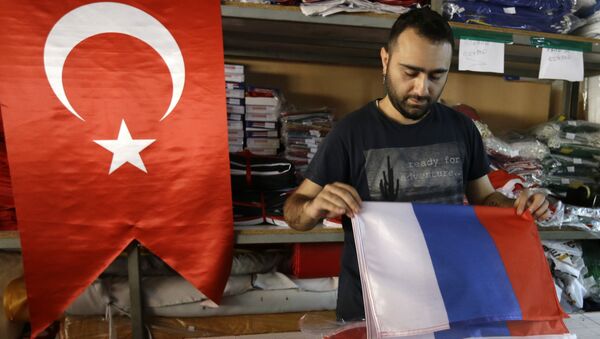"Contacts and negotiations with the Turkish side are ongoing," Peskov told reporters in confirming certain import restrictions from Turkey that remain in place.
Peskov also recalled that Turkish President Recep Tayyip Erdogan was provided with Russia’s arguments in favor of maintaining the restrictions against Turkey in Russia’s city of Sochi.
Russia introduced an embargo on a range of Turkish goods, as well as suspending its visa-free regime with Turkey, after a Russian Su-24 aircraft was shot down over Syria by a Turkish F-16 fighter. Russia's decisions came into effect on January 1, 2016.
Bilateral relations began to improve following Turkey's apology in June 2016. In October, 2016, the Russian side initiated a partial lifting of the embargo on Turkish food products and continued to ease the restrictions in March 2017. On May 3, Russian President Vladimir Putin and Erdogan agreed to continue easing trade restrictions in Sochi. Products such as stone and citrus fruits, fresh and refrigerated onion, shallot, and broccoli are therefore among those which have already been excluded from the sanctions list.
On Monday, Russian and Turkish prime ministers, Arkady Dvorkovich and Mehmet Simsek signed a joint statement on mutually lifting the remaining trade restrictions, however, the restrictions related to the Turkish tomatoes will remain in force, according to Russian Prime Minister Dmitry Medvedev.



